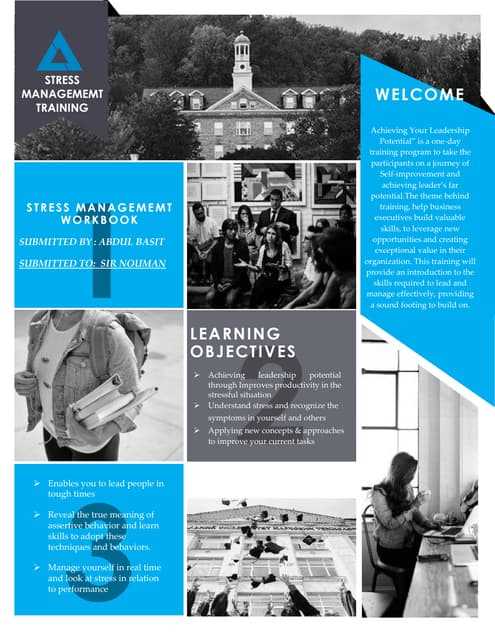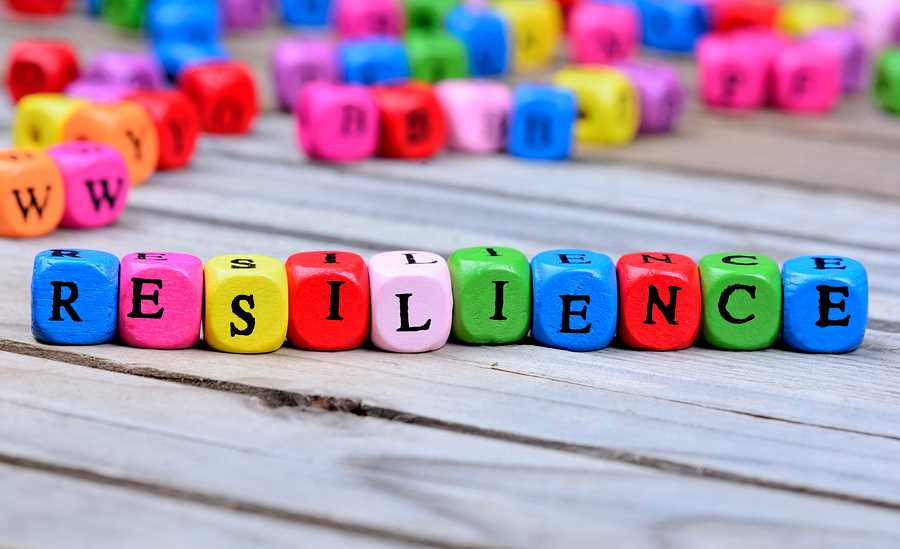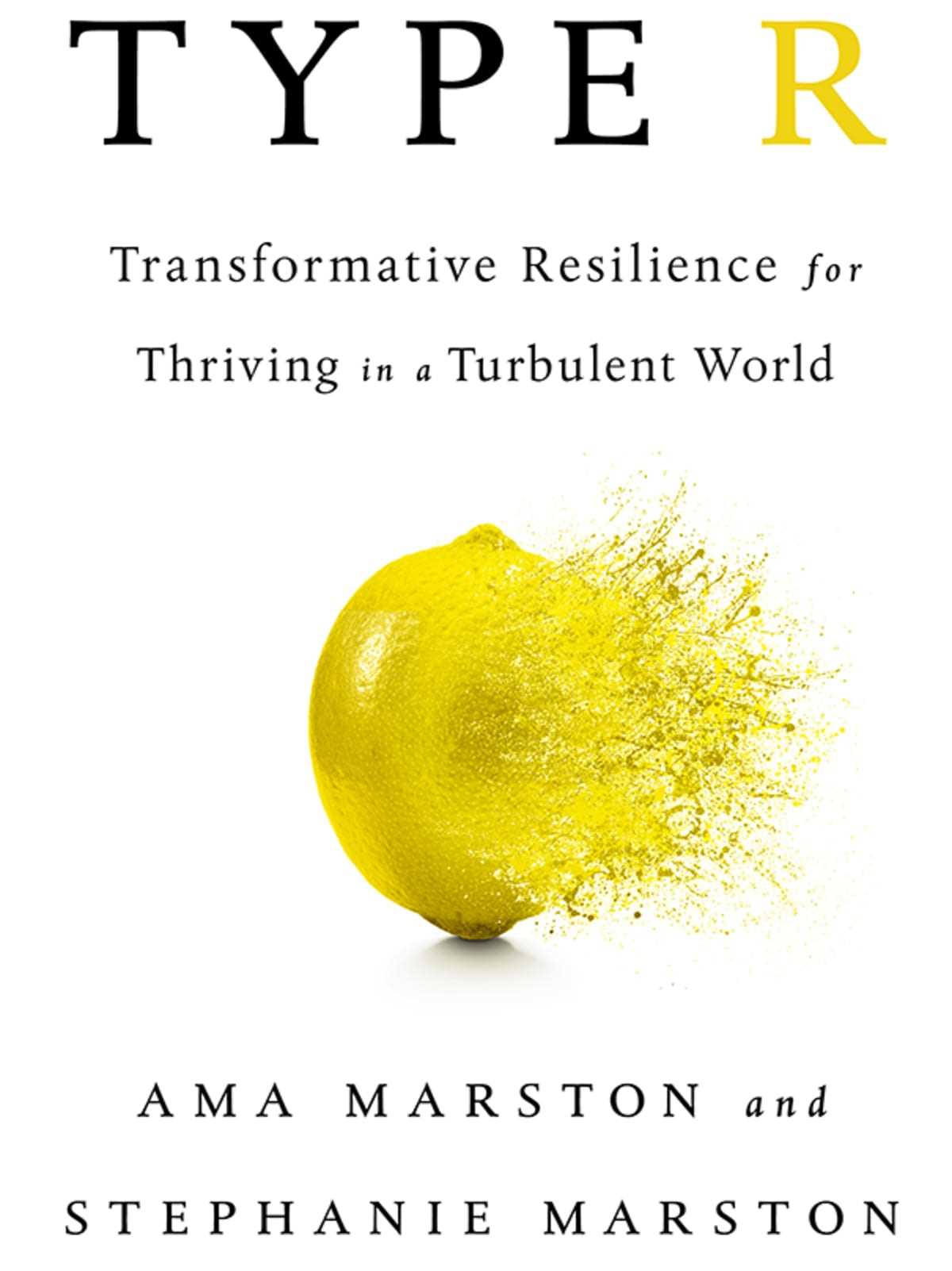
In today’s fast-paced world, stress has become a common part of our lives. Whether it’s due to work pressure, personal challenges, or global events, we all face increased levels of stress on a daily basis. It’s important to find ways to build resilience and effectively handle this stress, and that’s where Stephanie Marston comes in.
Stephanie Marston is an amazing resilience expert who has dedicated her career to helping individuals and organizations build resilience in the face of adversity. With her years of experience and unique insights, she has developed a set of tips and strategies that can help anyone build resilience and thrive in stressful situations.
One of the key strategies that Marston emphasizes is the importance of self-care. Taking care of yourself physically, mentally, and emotionally is essential for building resilience. This can include activities such as exercise, meditation, journaling, and spending time with loved ones. By prioritizing self-care, you can recharge and rejuvenate, making it easier to handle increased stress.
Another tip that Marston shares is the power of positive thinking. Our thoughts have a significant impact on our emotions and actions. By cultivating a positive mindset and reframing negative thoughts, we can build resilience and approach stressful situations with a more optimistic outlook. Marston provides practical techniques and exercises that can help individuals shift their mindset and build a positive mental attitude.
Overall, building resilience is a skill that can be learned and developed. By following the tips and strategies shared by Stephanie Marston, individuals can build the resilience needed to handle increased stress and thrive in today’s demanding world.
Understanding the Importance of Resilience

In today’s world, stress levels have significantly increased, and it’s becoming more challenging to navigate through life’s ups and downs. This is where resilience plays a crucial role in helping us cope with the pressures and demands we face.
Resilience can be defined as the ability to bounce back from adversity, adapt to change, and maintain a positive outlook despite the challenges we encounter. It’s like a muscle that can be developed and strengthened over time.
Stephanie Marston, a renowned expert in stress management and resilience, emphasizes the importance of building resilience in her AMA sessions. According to Marston, resilience acts as a protective shield that helps us cope with stress and prevents it from overwhelming us.
Building resilience involves developing various skills and strategies to manage stress effectively. It requires self-awareness, emotional intelligence, and the ability to regulate our emotions. By understanding our triggers and learning how to respond rather than react, we can build resilience and maintain a sense of calm in stressful situations.
Resilience also involves cultivating a positive mindset and practicing self-care. Taking care of our physical and mental well-being is essential for building resilience. This includes getting enough sleep, eating a healthy diet, engaging in regular exercise, and practicing relaxation techniques such as meditation or deep breathing exercises.
Additionally, building a strong support network is crucial for resilience. Surrounding ourselves with positive and supportive individuals who can provide encouragement and guidance can greatly enhance our ability to handle increased stress. Seeking help and reaching out to others when needed is a sign of strength, not weakness.
In conclusion, understanding the importance of resilience is vital in today’s fast-paced and stressful world. By building resilience, we can better navigate through life’s challenges, maintain our well-being, and effectively handle increased stress. So, let’s take the necessary steps to develop our resilience muscle and thrive in the face of adversity.
Recognizing the Impact of Stress

Stress can have a significant impact on our lives, affecting our physical and mental well-being. It is important to recognize the signs and symptoms of stress in order to build resilience and effectively handle increased stress. Stephanie Marston, a renowned expert in stress management, emphasizes the importance of acknowledging the impact of stress on our lives.
Increased stress levels can lead to various negative effects on our health. It can weaken our immune system, making us more susceptible to illnesses. Chronic stress can also contribute to the development of mental health disorders such as anxiety and depression. Moreover, stress can affect our relationships, work performance, and overall quality of life.
By recognizing the impact of stress, we can take proactive steps to build resilience and better handle stress. Stephanie Marston suggests that acknowledging stress and its effects is the first step towards finding effective coping mechanisms. This can involve seeking support from loved ones, practicing self-care activities, and adopting healthy lifestyle habits such as exercise and proper nutrition.
It is also important to be aware of our personal stress triggers and learn how to manage them effectively. This may involve setting boundaries, prioritizing tasks, and implementing stress-reducing techniques such as deep breathing exercises or mindfulness meditation.
In conclusion, recognizing the impact of stress is crucial for building resilience and effectively handling increased stress. Stephanie Marston’s expertise in stress management highlights the significance of acknowledging stress and its effects on our lives. By doing so, we can take proactive steps to mitigate the negative impact of stress and enhance our overall well-being.
Exploring the Benefits of Resilience

Resilience is a valuable trait that can help individuals navigate through the challenges and stressors of life. Stephanie Marston, a renowned expert in resilience, emphasizes the importance of building resilience to handle increased stress. By developing this skill, individuals can better cope with adversity and bounce back from setbacks.
One of the key benefits of resilience, as highlighted by Marston, is the ability to maintain a positive mindset even in the face of difficulties. Resilient individuals have the capacity to reframe negative situations and find opportunities for growth and learning. This positive outlook not only helps them overcome challenges but also enhances their overall well-being.
Another advantage of resilience is its impact on mental and emotional health. Building resilience can improve one’s ability to manage stress and reduce the risk of developing mental health issues such as anxiety and depression. Resilient individuals are better equipped to handle the pressures of life and adapt to changes, leading to increased psychological well-being.
Resilience also plays a significant role in building strong relationships. People who possess resilience are more likely to have effective communication skills and the ability to empathize with others. This enables them to establish and maintain healthy connections, both personally and professionally. Resilience fosters a sense of connection and support, which can contribute to a more fulfilling and satisfying life.
Furthermore, resilience is closely linked to success and achievement. Resilient individuals are more likely to set and pursue meaningful goals, and they have the determination and perseverance to overcome obstacles along the way. This resilience-driven mindset allows them to stay focused, motivated, and resilient in the face of challenges, ultimately leading to greater accomplishments.
Overall, building resilience is an essential skill in today’s fast-paced and stressful world. Stephanie Marston, an AMA in resilience, emphasizes its numerous benefits, including maintaining a positive mindset, improving mental and emotional health, fostering strong relationships, and driving success. By developing resilience, individuals can effectively navigate the ups and downs of life and emerge stronger and more resilient.
Building a Resilience Mindset

In today’s fast-paced and demanding world, it is more important than ever to build resilience to handle increased stress. Stephanie Marston, a renowned expert in resilience and stress management, offers valuable insights on how to develop a resilient mindset.
Marston emphasizes the importance of understanding that resilience is not something we are born with, but rather something we can develop and strengthen over time. She suggests that building resilience starts with recognizing and accepting that stress is a normal part of life. By acknowledging this reality, we can begin to reframe our mindset and view stress as an opportunity for growth and learning.
Marston encourages individuals to build resilience by cultivating self-awareness and practicing self-care. This includes taking time for self-reflection, identifying personal strengths and weaknesses, and implementing healthy coping mechanisms such as exercise, meditation, and maintaining a balanced lifestyle.
Additionally, Marston highlights the importance of building a strong support network. Surrounding ourselves with positive and supportive individuals can provide us with the encouragement and resources we need to navigate through challenging times. She also suggests seeking professional help, such as therapy or counseling, if needed.
Furthermore, Marston emphasizes the power of reframing negative thoughts and practicing gratitude. By shifting our perspective and focusing on the positive aspects of our lives, we can build resilience and develop a more optimistic outlook.
In conclusion, building a resilience mindset is essential for effectively handling increased stress. By following the advice of Stephanie Marston, individuals can develop the necessary skills and strategies to build resilience and thrive in the face of adversity.
Practical Strategies for Building Resilience

Building resilience is a crucial skill in today’s fast-paced and demanding world. With increased stress levels, it is important to develop strategies to handle and overcome these challenges. Stephanie Marston, a renowned expert in resilience, shares practical tips to build resilience and thrive in the face of stress.
1. Embrace Change: Resilient individuals understand that change is a natural part of life. Instead of resisting it, they adapt and find new opportunities for growth. By embracing change, you can build your resilience and develop a more positive outlook.
2. Practice Self-Care: Taking care of yourself is essential for building resilience. Prioritize self-care activities such as exercise, healthy eating, and getting enough sleep. Engage in activities that bring you joy and help you relax, such as hobbies or spending time in nature.
3. Cultivate a Supportive Network: Surround yourself with people who uplift and support you. Build strong relationships with friends, family, and colleagues who can provide emotional support during challenging times. Having a supportive network can help you navigate stress and bounce back more easily.
4. Develop Problem-Solving Skills: Resilient individuals are proactive and resourceful when it comes to problem-solving. Enhance your problem-solving skills by breaking down challenges into smaller, manageable steps. Seek creative solutions and learn from past experiences to improve your ability to handle stress effectively.
5. Practice Mindfulness: Mindfulness is a powerful tool for building resilience. Take time each day to practice mindfulness techniques such as meditation or deep breathing exercises. This can help you stay present, reduce stress, and enhance your overall well-being.
6. Set Realistic Goals: Setting realistic goals is essential for building resilience. Break down larger goals into smaller, achievable steps. Celebrate your progress along the way, and don’t be too hard on yourself if setbacks occur. By setting realistic goals, you can build confidence and resilience.
7. Maintain a Positive Mindset: Resilient individuals maintain a positive mindset even in the face of adversity. Practice positive self-talk and challenge negative thoughts. Focus on your strengths and achievements, and cultivate gratitude for the good things in your life.
By implementing these practical strategies into your daily life, you can build resilience and effectively handle increased stress. Remember, resilience is a skill that can be developed and strengthened over time. With the guidance of experts like Stephanie Marston, you can thrive in the face of challenges and lead a more resilient and fulfilling life.
Developing Self-Awareness

Increasing self-awareness is a key aspect of building resilience to handle increased stress. Stephanie Marston, a renowned expert in stress management, emphasizes the importance of self-awareness in her AMA sessions.
MarstonStephanie suggests that building self-awareness involves recognizing and understanding our own thoughts, emotions, and reactions to stress. By developing this awareness, we can better manage our stress levels and build resilience.
Self-awareness allows us to identify our triggers and understand how stress affects us individually. It helps us recognize the signs of stress and take proactive steps to handle it effectively.
Marston emphasizes the need to pay attention to our physical and emotional reactions to stress. This includes being aware of changes in our body, such as increased heart rate or tension in our muscles, as well as our emotional state, such as feelings of overwhelm or irritability.
By being self-aware, we can identify when we are starting to feel overwhelmed and take steps to manage our stress before it becomes unmanageable. This may involve practicing self-care activities, seeking support from friends or professionals, or engaging in stress-reducing techniques such as deep breathing or mindfulness.
Building self-awareness takes time and practice, but it is a valuable skill that can greatly improve our ability to handle increased stress. By understanding our own stress responses and taking proactive steps to manage it, we can build resilience and maintain our well-being in the face of challenges.
Cultivating a Supportive Network

In today’s fast-paced world, it’s important to build resilience and learn how to handle increased stress. Stephanie Marston, a renowned expert in stress management, offers valuable tips on how to cultivate a supportive network to help you navigate through challenging times.
Marston emphasizes the importance of surrounding yourself with people who uplift and encourage you. Building a network of supportive individuals can provide a sense of belonging and help you cope with stress more effectively. Whether it’s family members, friends, or colleagues, having a strong support system can make a significant difference in your overall well-being.
Marston suggests the following strategies to cultivate a supportive network:
1. Prioritize Relationships: Take the time to nurture and strengthen your relationships. Make an effort to connect with loved ones regularly, whether it’s through phone calls, video chats, or in-person meetings. Building strong connections can provide a sense of security and support during stressful times.
2. Be Open and Vulnerable: Share your thoughts and feelings with trusted individuals in your network. Opening up about your struggles and challenges can help create deeper connections and foster an environment of empathy and understanding. Remember, vulnerability is not a sign of weakness but a strength that allows others to support you.
3. Seek Out Like-Minded Individuals: Look for people who share similar interests or values. Joining clubs, organizations, or online communities centered around your passions can help you connect with individuals who understand your experiences and can provide valuable support and advice.
4. Offer Support to Others: Building a supportive network is a two-way street. Show genuine care and empathy towards others in your network. Offer a listening ear, provide assistance when needed, and celebrate their successes. By being there for others, you create a reciprocal and nurturing environment.
5. Set Boundaries: While it’s important to have a supportive network, it’s equally crucial to set boundaries to protect your own well-being. Learn to say no when necessary and prioritize self-care. Remember, you can only be there for others when you take care of yourself first.
By following these strategies, you can cultivate a supportive network that will help you build resilience and better handle increased stress. Remember, Stephanie Marston’s AMA is a valuable resource for further guidance on stress management and resilience building.

I am Patrina de Silva, a psychologist and mental health blogger in Sri Lanka. After obtaining psychology degrees from the University of Colombo and Monash University, I returned home to work as a counselor while also starting the popular blog “Pressy but Happy” to provide advice on psychological issues. Over the past decade, my empathetic articles have made my blog a leading mental health resource in the country. In addition to writing, I maintain a private therapy practice, frequently volunteer counseling time, and conduct seminars, driven by my passion for destigmatizing mental illness and educating the public on the mind-body connection. I strive to be an influential voice in my field through my compassionate approach.
